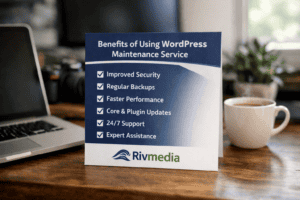With the advent of multiple government regulations guaranteeing such things as patient’s rights to privacy (HIPAA) and clear oversight of Medicaid payments, as well as the skyrocketing cost of healthcare and the importance of maintaining proper records for patient health and for proper insurance payment, healthcare management is becoming more complex than ever.
It is also a more specialized form of management than most others. Frequently, a healthcare management professional entered through the nursing track, taking specialized classes to help them learn how to administer hospitals.
This is vital to health care; health care professionals are the only ones who can truly understand how to run a hospital effectively. But there’s a problem with this system.
Health care professionals are not necessarily experts in management. Though they understand every possible detail about charting, patient care, and hospital maintenance, they may not be as well versed in IT issues, government regulations, and efficiency issues.
For this reason, a hospital or other healthcare agency may find itself in need of a good management consultant.
Health care management consultants
Health care management consultants, unlike health care administrators, don’t need a healthcare degree. Instead, they should be familiar with any new legislation, new management techniques, and new IT systems.
He or she should be able to use this knowledge to make existing healthcare management systems more efficient.
Most particularly, your health care management consultant should be well-versed in HIPAA and other associated healthcare related regulations.
Because of the strict requirements around HIPAA ensuring patient privacy, surprising issues affecting all departments have been triggered.
For instance, there are very few prescription-reward coupons being delivered by stores and pharmacies trying to pull in more prescription revenue because HIPAA requires a stronger separation between marketing and health care related departments.
Though this doesn’t have as strong an effect on hospitals and most other healthcare businesses, the issue is still there.
You can’t allow too many people access to patient records. And patient records may include pharmacy information and financial information as well as health records.
Because of the tangled confusion that’s resulted from this new legislation, it really takes an expert to understand how it needs to be implemented.
If you have problems with properly applying government regulations in your health care agency, you probably should hire a healthcare management consultant.
The other large issue usually not specialized in by hospital administrators is IT. The possibilities for the application of IT solutions to healthcare are vast and profound.
For instance, with today’s databasing and wireless technologies, you can carry around a PDA in a hospital that will allow you instant access to any patient chart you require.
Instead of paper charting, you can go electronic, using either a PDA or notepad computer that processes written charting. You can design IT systems that will send appropriate messages to different departments
– when you admit a patient, for instance, it will send information to the nursing station, housing, the operating or delivery room, and billing.
Instead of notifying housekeeping that you need a room, they have one ready for you automatically. Instead of telling billing what authorizations you need from the insurance company, your admission of a patient triggers that request automatically.
Health care is changing rapidly, and still, has areas of efficiency maximization that are far from being leveraged. With a healthcare management consultant, you may be able to begin exploring the possibilities new technology brings.









